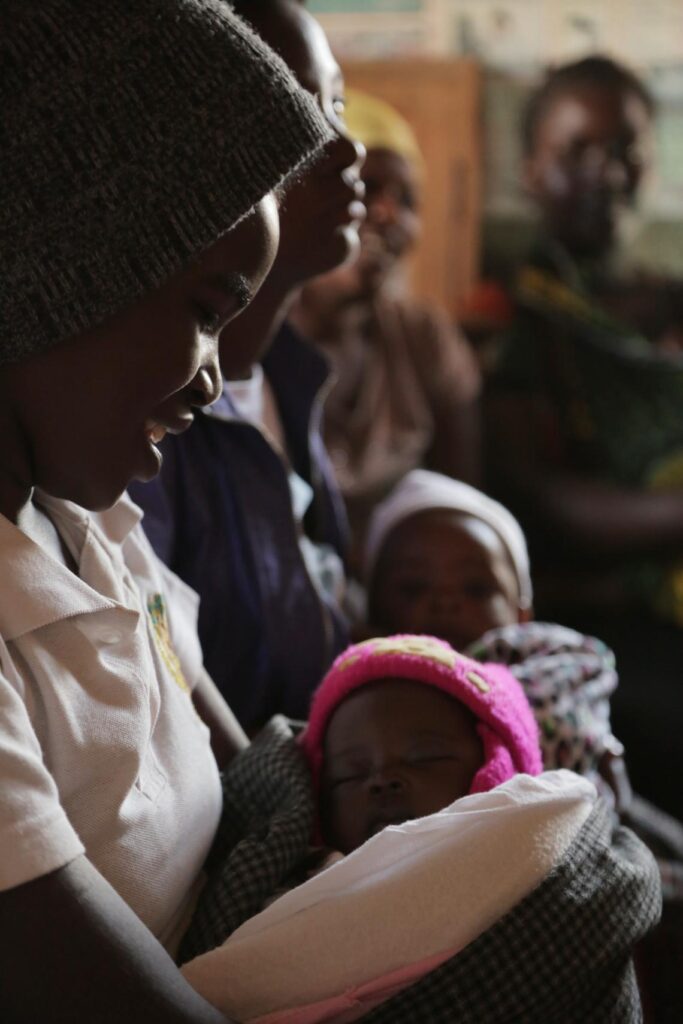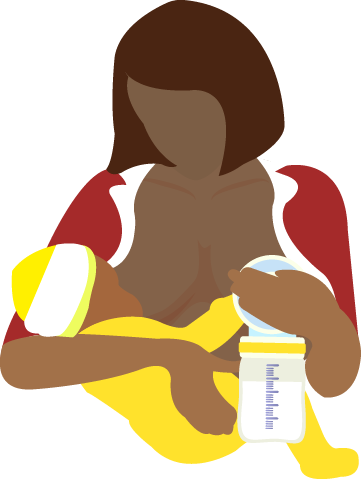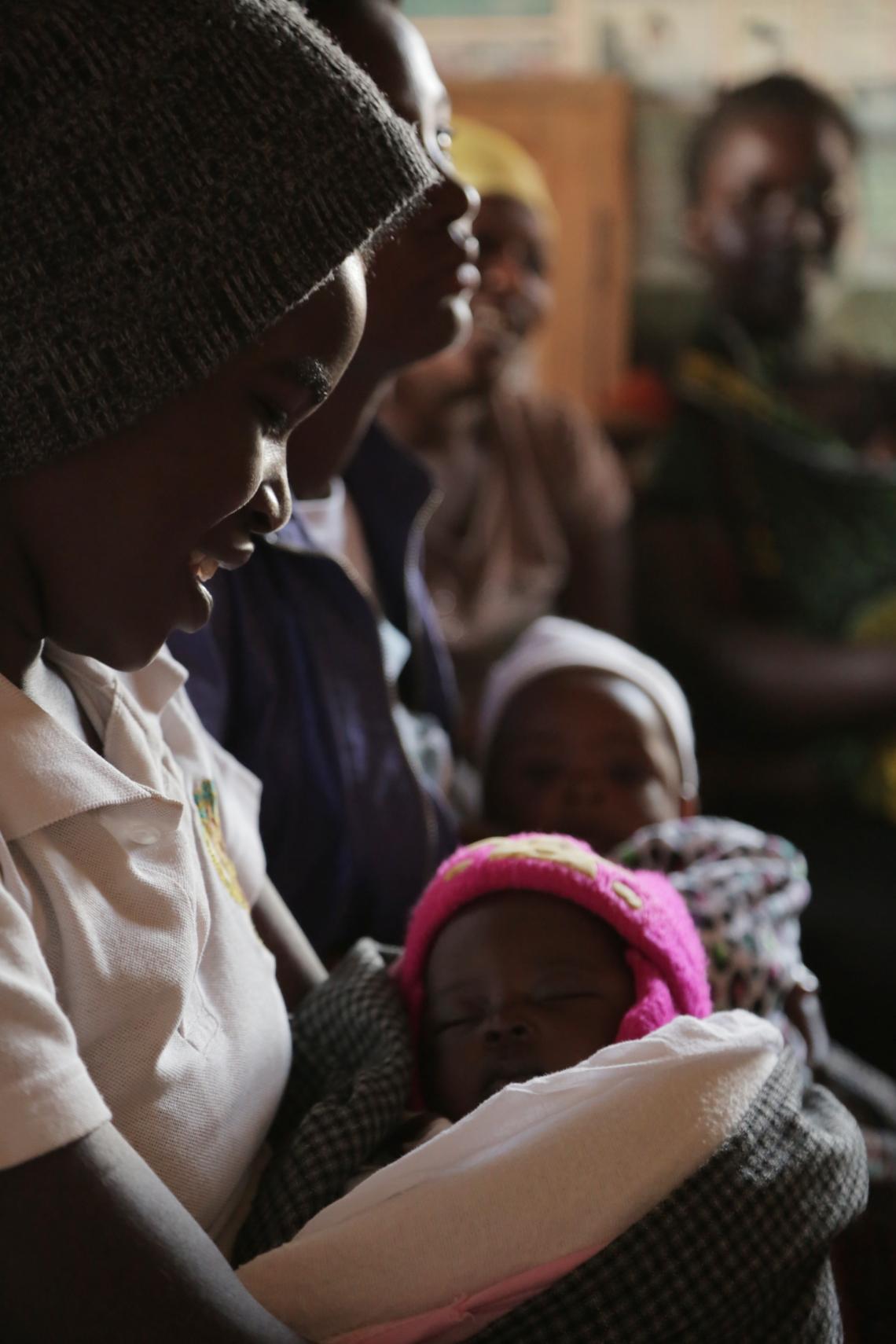By Chiara Frisone

Photo/Courtesy / ©UNICEF
A group of mothers and pregnant women has gathered in the meeting room inside the Ilemi Ward Executive Officer’s building in Mapelele Street, Mbeya, southern Tanzania, where a nutrition counselling session is about to start.
Noah Enhard Mwalongo and Steven William Mwaikenda welcome the women and begin the session by asking them what they know about stunting.
“It’s when a child is too short,” 23-year-old Maria Mugimba says.
“It affects the child’s brain development,” 28-year-old Sophia Festo says.
After explaining what stunting is, Steven lists the different food groups and shows the image of a food pyramid on a flipchart. “These group counselling sessions are aimed at reducing stunting in our communities,” Steven says. “Stunting is a big problem, it’s due to inadequate knowledge around nutrition. For example, when a newborn baby cries too much, the mother thinks it’s because he is thirsty, so they give him water. Sometimes they even give their babies sodas.”Steven and Noah are two of the 286 community health workers that facilitate monthly counselling sessions and carry out community outreach within the Accelerating Stunting Reduction Project (ASRP) implemented by Catholic Relief Services (CRS) in partnership with the Centre for Counselling, Nutrition and Health Care (COUNSENUTH) and with funding from UNICEF, IrishAID and UKAid.
The project aims to reduce the prevalence of stunting among children under five years from 44 per cent in 2013 to 35 per cent in 2019 in Mbeya, Iringa, Njombe and Songwe regions of Tanzania.Extensive research shows that stunting in infancy and early childhood causes lasting damage, including poor cognition and educational performance. As they grow, these children are more likely to become overweight, and when they enter adulthood they are more likely to earn less than their non-stunted peers.
In the Mbeya region, the prevalence of stunting is 36 per cent, which is high according to the World Health Organization’s classification. Exclusive breastfeeding up to six months is low (27 per cent) and dietary diversity among children aged 6 to 23 months is inadequate as only 6 per cent of children eat from the recommended four or more food groups every day. That is why the project aims to improve nutrition behaviours among pregnant women and caregivers of children under two years and increase the diversity of nutrient-rich foods that they prepare at home.Maria has brought her two-month-old Rosemary to the counselling session. “Today I’ve learnt what pregnant and lactating women should eat to prevent stunting,” she says. “I’ve learnt about planning my meals. I wasn’t planning before but now I will do it so that I can vary the food during the week. I also learnt that I should eat different vegetables and fruits.” Although Maria knew what stunting was before attend the counselling session, she did not know that it was related to nutrition.Like Maria, Sophia has brought her two-month-old daughter Yoana with her to the counselling session. She is still breastfeeding her and plans to continue doing so until she is two years old. “This is the second counselling session I’ve attended. I found them very helpful especially for when I will start mix-feeding my child, so I know what foods to give her,” she says.
When Noah asks the women what foods they normally consume at home, most say they eat mostly rice, corn and beans, but very little meat. Besides bananas, fruit is virtually absent from their diet, while vegetables are limited to spinach, potatoes and pumpkin leaves. “Feeding practices among mothers are poor,” Noah explains. “Mothers don’t breastfeed their children long enough and don’t feed them enough nutritious foods, so we are trying to change those practices in the long term.”
In addition to the monthly counselling sessions, Noah and Steven also conduct door-to-door visits to pregnant and lactating mothers living in the wards for which they are responsible, and encourage them to attend their ante- and post-natal visits.
Maria and Sophia leave the counselling session satisfied with the knowledge gained and make a commitment to further spreading that knowledge. “I will encourage other women to come to the session and if they don’t want…I will teach them what I’ve learnt myself,” Maria says. “I will bring more friend and will tell the friends who feed porridge to their babies not to do so before the baby is 6 months old,” Sophia says.
Source: UNICEF
Link: https://www.unicef.org/tanzania/stories/counselling-sessions-pregnant-and-breastfeeding-mothers




